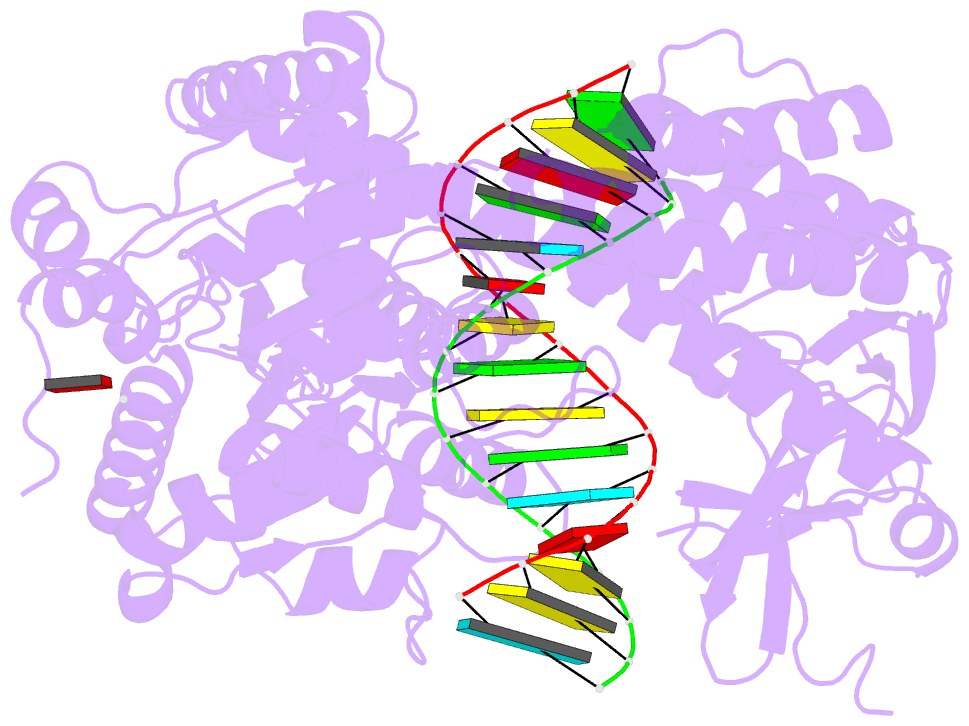Summary information and primary citation
- PDB-id
- 7nga; SNAP-derived features in text and JSON formats;
DNAproDB
- Class
- antiviral protein
- Method
- cryo-EM (3.9 Å)
- Summary
- Cryoem structure of the mda5-dsrna filament in complex with adp with 88-degree helical twist
- Reference
- Yu Q, Herrero Del Valle A, Singh R, Modis Y (2021): "MDA5 disease variant M854K prevents ATP-dependent structural discrimination of viral and cellular RNA." Nat Commun, 12, 6668. doi: 10.1038/s41467-021-27062-5.
- Abstract
- Our innate immune responses to viral RNA are vital defenses. Long cytosolic double-stranded RNA (dsRNA) is recognized by MDA5. The ATPase activity of MDA5 contributes to its dsRNA binding selectivity. Mutations that reduce RNA selectivity can cause autoinflammatory disease. Here, we show how the disease-associated MDA5 variant M854K perturbs MDA5-dsRNA recognition. M854K MDA5 constitutively activates interferon signaling in the absence of exogenous RNA. M854K MDA5 lacks ATPase activity and binds more stably to synthetic Alu:Alu dsRNA. CryoEM structures of MDA5-dsRNA filaments at different stages of ATP hydrolysis show that the K854 sidechain forms polar bonds that constrain the conformation of MDA5 subdomains, disrupting key steps in the ATPase cycle- RNA footprint expansion and helical twist modulation. The M854K mutation inhibits ATP-dependent RNA proofreading via an allosteric mechanism, allowing MDA5 to form signaling complexes on endogenous RNAs. This work provides insights on how MDA5 recognizes dsRNA in health and disease.





